An absorbing debut novel about three gay friends in Brazil whose lives become intertwined in the face of HIV, perfect for fans of Adam Silvera and Bill Konigsberg.Ian has just been diagnosed with HIV. Victor, to his great relief, has tested negative. Henrique has been living with HIV for the past three years. When Victor finds himself getting tested for HIV for the first time, he can’t help but question his entire relationship with Henrique, the guy he has — had — been dating. See, Henrique didn’t disclose his positive HIV status to Victor until after they had sex, and even though Henrique insisted on using every possible precaution, Victor is livid. That’s when Victor meets Ian, a guy who’s also getting tested for HIV. But Ian’s test comes back positive, and his world is about to change forever. Though Victor is loath to think about Henrique, he offers to put the two of them in touch, hoping that perhaps Henrique can help Ian navigate his new life. In the process, the lives of Ian, Victor, and Henrique will become intertwined in a story of friendship, love, and self-acceptance. Set in Rio de Janeiro, Brazil, this utterly engrossing debut by Brazilian author Lucas Rocha calls back to Alex Sanchez’s Rainbow Boys series, bringing attention to how far we’ve come with HIV, while shining a harsh light on just how far we have yet to go.
Prejudices
Leaf
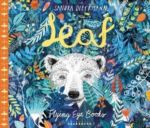
When a polar bear arrives unexpectedly in the woods, the animals fear and avoid him, suspecting him to be dangerous – and his habit of collecting leaves only adds to their distrust. Then one day, they watch as he attempts to fly over the water with wings made of colorful leaves…just trying to go home.
Flawed

Celestine North lives a perfect life. She’s a model daughter and sister, she’s well-liked by her classmates and teachers, and she’s dating the impossibly charming Art Crevan. But then Celestine encounters a situation in which she makes an instinctive decision. She breaks a rule and now faces life-changing repercussions. She could be imprisoned. She could be branded.
Zack
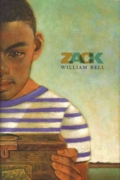
The son of a Jewish father and black mother, high school senior Zack has never been allowed to meet his mother’s family, but after doing a research project on a former slave, he travels from his home in Canada to Natchez, Mississippi to find his grandfather.
Golden Boy
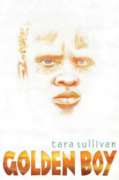
“A Tanzanian albino boy finds himself the ultimate outsider, hunted because of the color of his skin”–
Join the discussion of Golden Boy as well as other books centered around relocation on our My Take/Your Take page.
Infinite Sky
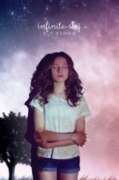
After her mother leaves and her brother and father grow increasingly distant, 13-year-old Iris finds solace and friendship in Trick, a 14-year-old gypsy boy.
Dance For The Land
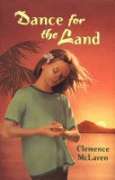
When twelve-year-old Kate, who is half-white, moves to Hawaii with her brother and father, she becomes a victim of racial prejudice but also learns the meaning of her middle name.
In Andal’s House
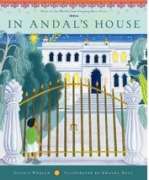
As a young boy in Gujarat, India, Kumar sometimes feels like he lives in two worlds. First there is the old world where people and their choices are determined by prejudice and bigotry. But then there is the second, modern world: in this world Kumar can be friends with whomever he chooses and his future looks bright. As part of the annual Diwali celebration, Kumar is invited to the house of his classmate Andal to watch fireworks. Andal is from a high-caste Brahmin family so Kumar is especially pleased to be included. But there in Andal’s house, Kumar’s two worlds collide in a very unpleasant way. Instead of being welcomed as a guest, Kumar is sent away, forbidden to join the festivities. Angry and hurt, Kumar is left questioning his place in Indian society. Where does he fit in? To which world does he really belong?
Before There Was Mozart: The Story of Joseph Boulogne, Chevalier De Saint-George
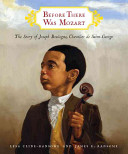
The musical superstar of 18th-century France was Joseph Boulogne—a Black man. This inspiring story tells how Joseph, the only child of a Black slave and her White master, becomes “the most accomplished man in Europe.” After traveling from his native West Indies to study music in Paris, young Joseph is taunted about his skin color. Despite his classmates’ cruel words, he continues to devote himself to his violin, eventually becoming conductor of a whole orchestra. Joseph begins composing his own operas, which everyone acknowledges to be magnifique. But will he ever reach his dream of performing for the king and queen of France? This lushly illustrated book by Lesa Cline-Ransome and James E. Ransome introduces us to a talented musician and an overlooked figure in Black history.
A Really Good Brown Girl
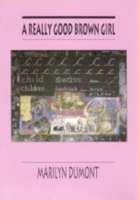
Marilyn Dumont’s Metis heritage offers her challenges that few of us welcome. Here she turns them to opportunities in a voice that is fierce, direct, and true, she explores and transcends the multiple boundaries imposed by society on the self. She mocks, with exasperation and sly humour, the banal exploitation of Indianness, more-Indian-than-thou oneupmanship, and white condescension and ignorance. She celebrates the person, clearly observing, who defines her own life. These are Indian poems, Canadian poems, human poems.
